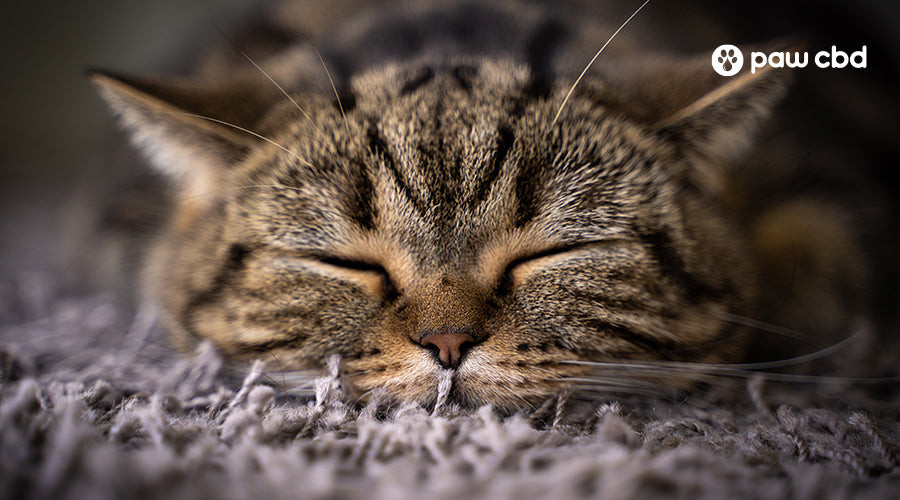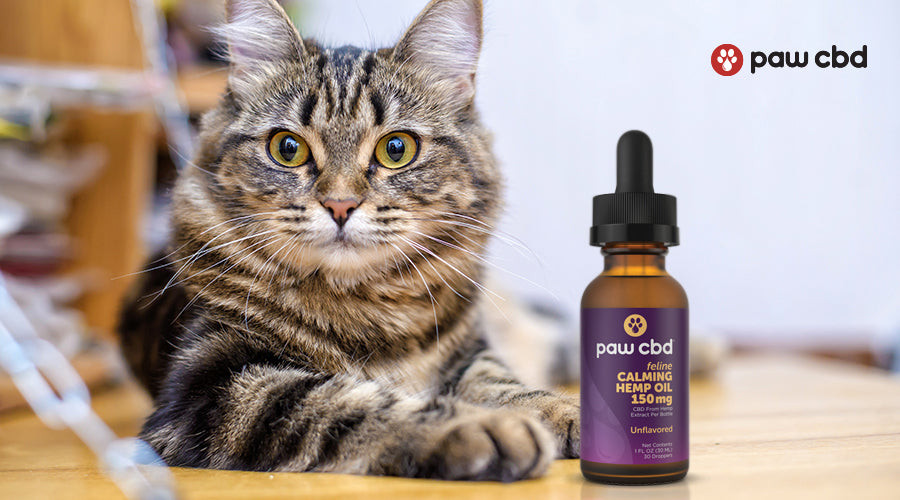If you’re a cat owner dealing with a restless or anxious feline, you might have heard about Melatonin For Cats as a potential solution. Melatonin, a natural hormone, is gaining popularity among pet owners seeking ways to help their cats relax and sleep better. But before you decide to give melatonin to your cat, it’s essential to understand what it is, how it works, its safety aspects, and the proper way to administer it. This comprehensive guide will provide you with all the information you need about melatonin for cats, helping you determine if it’s the right choice to enhance your cat’s well-being.
Understanding Melatonin: The Basics
To make an informed decision about using any supplement for your cat, it’s crucial to start with the fundamentals. Let’s delve into the basics of melatonin and its role in your cat’s body:
- How melatonin is produced
- Its function in a cat’s system
Natural Melatonin Production in Cats
Melatonin is a hormone naturally produced in your cat’s body, specifically by the pineal gland located near the brain, in response to darkness. Similar to humans and dogs, this process is triggered by the absence of light. However, exposure to excessive blue light, such as from televisions or phone screens, during nighttime hours can interfere with melatonin production. Furthermore, significant life changes or stressful experiences can also disrupt a cat’s natural melatonin levels.
Melatonin’s Role in Feline Physiology
Melatonin plays a vital role in regulating your cat’s sleep-wake cycle, also known as their circadian rhythm. Working in conjunction with other hormones and environmental cues like daylight, melatonin promotes healthy sleep patterns. Beyond sleep regulation, melatonin possesses natural calming properties, aiding in stress management for cats. This dual function makes it a valuable resource for supporting both restful sleep and emotional well-being in felines.
Exploring the Benefits of Melatonin for Cats
Melatonin is primarily used to help cats manage stress and maintain a consistent sleep schedule. Anecdotal evidence also suggests its usefulness in calming cats experiencing heat cycles. Let’s explore these benefits in detail:
Supporting Regular Sleep Schedules with Melatonin
 A serene cat napping peacefully.
A serene cat napping peacefully.
While it might seem counterintuitive to help cats sleep, given their reputation for napping, maintaining a regular sleep schedule is critical for their health. Sleep disruptions can negatively impact a cat’s overall well-being. Melatonin can be a helpful tool in regulating their sleep, especially in encouraging nighttime sleep and reducing daytime dozing, while respecting their natural crepuscular tendencies – being most active at dawn and dusk. It can also assist in re-establishing normal sleep patterns after life changes like moving to a new home or during periods of holiday commotion.
Managing Stress Responses in Cats with Melatonin
Melatonin’s calming effects can be beneficial in helping cats cope with various stressors, such as loud noises, unfamiliar visitors, or neighborhood dogs. By promoting healthy sleep-wake cycles, melatonin enhances a cat’s resilience to daily stressors. Additionally, its inherent soothing qualities contribute to a general sense of relaxation and well-being in cats.
Melatonin for Cats in Heat: Is it Effective?
Some cat owners explore melatonin to alleviate the distress associated with heat cycles in female cats. There’s some indication that melatonin might suppress heat cycles. While spaying remains the most effective method to prevent heat cycles and related behaviors, owners intending to breed their cats might seek alternatives to manage the heat cycle period.
Although its effectiveness in suppressing hormonal cycles is not fully established, melatonin can still be valuable for managing cats in heat due to its calming properties. By promoting relaxation and better sleep, melatonin can help reduce the intensity of heat-related behaviors, making the experience more manageable for both the cat and owner. A well-rested and relaxed cat is less likely to exhibit extreme behaviors during heat.
Safety Considerations for Melatonin Use in Cats
Ensuring the safety of your feline companion is paramount. When considering melatonin for cats, it’s vital to be aware of the following safety aspects:
- The importance of choosing the right melatonin product
- Potential risks and side effects
- Age appropriateness for melatonin use
- Melatonin as a supportive tool, not a cure
- Potential drug interactions
Choosing the Right Melatonin Product for Your Cat
Not all melatonin supplements are created equally. The quality and safety can vary significantly between products. Opting for a reputable and trustworthy brand is crucial for ensuring your cat’s safety. Always scrutinize product labels and reviews before giving any melatonin supplement to your pet.
It’s imperative to never give human melatonin to cats. Human formulations may contain ingredients that are harmful to felines. Furthermore, consulting your veterinarian before introducing melatonin is essential, as certain pre-existing health conditions might make melatonin unsuitable for your cat. Generally, a high-quality, pet-specific melatonin product is safe for adult cats when used appropriately.
Potential Risks and Side Effects of Melatonin in Cats
While generally safe, melatonin is not entirely without potential side effects. It’s important to closely monitor your cat after introducing melatonin for any adverse reactions. Possible side effects in cats can include drowsiness, skin itching, changes in appetite, digestive upset, and in rare cases, disorientation. If you observe any of these signs, discontinue use and consult your veterinarian immediately.
Melatonin Use in Kittens: Not Recommended
Melatonin is not recommended for kittens. Kittens are in a critical phase of growth and development, and their routines, especially diet, should remain simple and consistent. Irregular sleep patterns are normal in kittens and typically regulate naturally as they mature. Introducing supplements like melatonin before their body has a chance to regulate itself is not advisable. Melatonin is generally intended for cats over one year old.
Melatonin: A Supportive Tool, Not a Cure-All
It’s important to understand that melatonin is a supportive tool to enhance your cat’s well-being and healthy routines, not a treatment for underlying health issues. It should not be seen as a cure for behavioral problems or medical conditions. Melatonin is most effective when used as part of a holistic approach to cat wellness, including a balanced diet, regular playtime, consistent sleep schedule, and routine veterinary check-ups.
Drug Interactions: Consult Your Veterinarian
Consulting your veterinarian before giving melatonin is crucial, especially because melatonin can interact with other medications. It may interfere with the effectiveness of certain drugs or cause adverse reactions when combined with specific medications. Your veterinarian can provide guidance on potential drug interactions and determine if melatonin is safe to use alongside any medications your cat is currently taking.
Administering Melatonin Safely to Your Cat
Once you’ve determined that melatonin is a safe option for your cat, understanding how to administer it correctly is crucial. Follow these guidelines for safe melatonin administration:
- Veterinary consultation is essential
- Choosing a pet-specific product
- Determining the correct dosage
- Considering combination with other wellness resources
Always Consult Your Veterinarian First
It cannot be stressed enough: always consult your veterinarian before giving melatonin or any new supplement to your cat. Your vet is familiar with your cat’s health history, current medications, and any specific conditions that might influence whether melatonin is appropriate. They can provide personalized advice on the suitability, dosage, and type of melatonin for your feline companion.
 A cat resting near a bottle of feline calming hemp oil with melatonin.
A cat resting near a bottle of feline calming hemp oil with melatonin.
Opt for a Pet-Specific Melatonin Product
Always choose melatonin products specifically formulated for cats, never human melatonin. Carefully read product labels and instructions and check product reviews. Thorough research is your best defense in ensuring you select a high-quality, effective, and safe melatonin product for your cat.
Determining the Correct Melatonin Dosage for Cats
When you decide to use melatonin, a primary question is “How much melatonin should I give my cat?” Administering the correct dosage is vital to maximize benefits and minimize potential side effects.
The appropriate dosage and frequency of melatonin administration depend on various factors, including your cat’s size, breed, and individual sensitivity. It’s always best to start with the lowest recommended dose for your cat’s weight and gradually increase if needed, based on your cat’s response. A reputable product will provide clear dosage guidelines tailored to cats.
Combining Melatonin with Other Wellness Supports
A significant advantage of melatonin is its compatibility with other wellness resources for cats, such as CBD. If you already use CBD for your cat or are considering it, explore products that combine CBD and melatonin in a single, easy-to-use form, like a tincture. Products like Calming CBD Oil for Cats harness the relaxing properties of hemp-derived CBD along with the soothing effects of melatonin and other calming herbs.
Conclusion: Melatonin as a Safe and Beneficial Tool for Cats
After considering the benefits, safety measures, and proper usage of melatonin for cats, and in consultation with your veterinarian, melatonin can be a valuable and safe tool to promote calmness and improve sleep quality in your feline friend. By being a responsible and informed consumer, carefully researching melatonin products, and seeking professional veterinary advice, you can confidently utilize melatonin to enhance your cat’s overall well-being.
